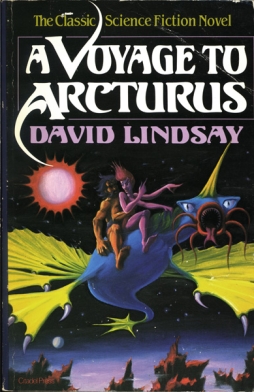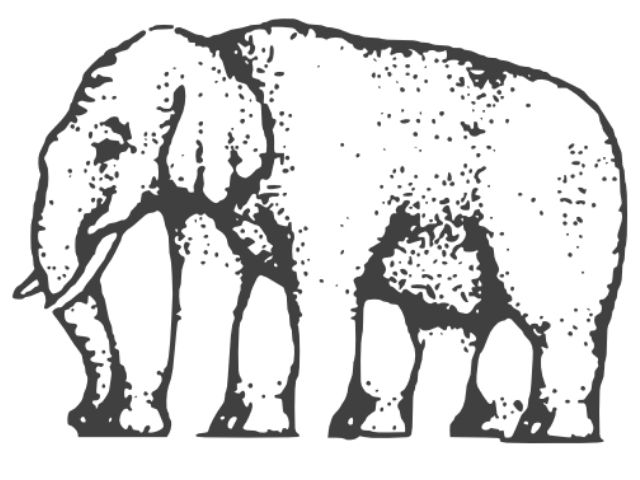After taking a long break on MRD Vol.2, I've had time to rethink some things. The game isn't radically changing, but I'm trying to hone in on the themes and mechanics, and it's hopefully much better for it.
There's a new name: If the Game isn't Fair you just have to Break the Rules: The Tikkunpunk RPG. This is, I hope, more in line with the themes of the game, and a bit punchier.
The below rules and world lore will likely be rewritten or reworked for the book if I ever write it, but for this blog post they're more integrated. Also, these new big changes have not been tested yet so will likely undergo continued revision.
See list of previous posts in Lowdown at the end of the post.
Nazarites (The PCs)
Nazarites are empowered to enact Tikkun Olam, The Mending of the World. Extracted from the Karmic Cycle; their Sisyphean struggle resides instead within Gilgul Neshamot. Like two cogs in a gear, Nazarite engagement in Gilgul Neshamot serves as a much needed corrective force on Karma after one thousand years of The Monkey King's Celestial Bureaucracy and the ensuing Karmic dysfunction. When the Nazarite Contract is signed, the Nazarite is bound to the owner of the contract, and to a Wyrm Shamir symbiont.
Wyrm Shamir symbionts
Wyrm Shamir symbionts are spirits of creation in larval form, bound to the soul of their Nazarite. In their larval form they lack agency to consent to the Nazarite Contract. It is the burden of the Nazarite to recognize this asymmetry and honor their Wyrm Shamir.
Wyrm Shamir symbionts create and summon the massive vessels known as Golem that the Nazarites use to traverse The Cosmic Ocean Tehom, the mindscape at the outer edges of creation. They also create the physical vessels, the bodies that grant Nazarites their supernatural abilities, and resurrection via Gilgul Neshamot.
Nazarite Contracts and The Cyblessed
The Cyblessed are advanced beings recently arriving in the material world from The Cosmic Ocean Tehom. The Cyblessed Liaisons work with Corporations, the superorganisms they see as the closest thing to peers humanity has to offer. The Cyblessed own the Nazarite Contracts, but the managing of Nazarites is delegated to the Corporations.
Gilgulim (The Gameplay Loop)
The terms of the Nazarite Contract are known as Nazarite Vows. Although most are transient, there are three Immutable Vows, listed in order of priority.
- The Nazarite Vows to always serve Tikkun Olam, the Mending of the World.
- The Nazarite Vows to nurture the Metamorphosis of their Wyrm Shamir symbiont.
- The Nazarite Vows to always serve the owner of the Nazarite Contract.
Often the Immutable Vows create troubling contradictions, such as when a Nazarite Vow in service to The Corporation (on behalf of The Cyblessed who own the Nazarite Contracts) would go against Tikkun Olam (See Resolving Nazarite Vows).
Gilgulim is the ecstatic communion with the Oneness of Creation. Though empowering, the temptation of Gilgulim can be like a moth to a flame; one must be sufficiently Ascended in Gilgul Neshamot, or else be burned by the Flame of Creation.
Gilgulim is like the Karma Score from MRD Vol. 1. Save Rolls have degrees of success. Rolling d20 under an Ability Score determines Success or Failure, and rolling d6 under Gilgulim determines whether the result is Full or Partial. However, in Conflict, if an Ability Score is reduced to 0, additional Damage is accrued as Gilgulim, and if Gilgulim is greater than 6, dire consequences ensue (see Cries of the Shamir and Dybbuk Mutation).
Resolving Nazarite Vows
Nazarites balance their Gilgulim and Ascend Gilgul Neshamot through Nazarite Vows, which may either be Fulfilled or Subverted.
Fulfillment is when the Nazarite Vow is enacted exactly as intended. Upon Fulfillment, the Nazarite divests Gilgulim (usually -1).
Subversion is when the Nazarite Vow is enacted in a way consistent with the letter of the Vow, but not its intention. Upon Subversion, the Nazarite accrues Gilgulim (usually +1).
Subversion is often key to addressing contradictions between the Immutable Vows. A lower-priority Immutable Vow may be Subverted for one of higher priority, but not the other way around. The Immutable Vow towards Tikkun Olam may never be Subverted.
Example: The Nazarite Vow is to extract resources from a Vessel of Tehom. However, upon arrival, the Nazarite Team finds the Vessel to be populated with intelligent life, and extracting the resources as intended would cause them harm and be in violation of Tikkun Olam. As the negotiations and attempt at fair trade reach a standstill, the Nazarite Team learns incidentally that the Celestial Predator, a cosmic kaiju, is on a vector towards the Vessel, and towards other areas of interest to the Corporation. The extraction of this information is reported, and the Nazarite Vow is Subverted.
This Subversion was true to the letter of the Nazarite Vow, extracting resources, but the resources were of a more abstract and immaterial nature than what was originally intended.
The nature of Nazarite Vow Fulfillment and Subversion changes the gameplay loop as compared to the Karmic Attachments of MRD Vol. 1, but mechanically it is very similar. In MRD Vol. 1 Karma is accrued when a Karmic Attachment is acquired, and divested when Resolved, so the gameplay loop is primarily in the balance of Karma. In MRD Vol. 2, Gilgulim is not accrued when a Nazarite Vow is acquired, but whether Gilgulim is accrued or divested is dependent on whether it is Resolved through Fulfillment or Subversion.
Nazarite Vows which would require Subversion in order to avoid contradiction often require more ingenuity, but Resolving them empowers the Nazarite with more Gilgulim. Nazarite Vows which do not risk contradiction are often easier to Fulfill, and while doing so decreases Gilgulim, this buffers against the need for reincarnation and the consequences which ensue (see Cries of the Shamir and Dybbuk Mutation).
Ascension and Ibbur Metamorphosis
Ascending the Levels of Gilgul Neshamot unlocks new Nazarite Features and brings the Wyrm Shamir symbiont closer to Metamorphosis. Each Ascension unlocks Nazarite Features and Metamorphoses, and when the maximum level is reached, the Wyrm Shamir symbiont is birthed from the Nazarite's soul as an Ibbur, a divine spirit in service of Tikkun Olam.
A Nazarite may Ascend after Resolving three Nazarite Vows and accruing Gilgulim to 6 (after which it resets to 1). At least one Nazarite Vow must be Resolved through Fulfillment, and at least one Resolved through Subversion.
This is mechanically mostly the same as MRD Vol. 1, except instead of divesting Karma to 1 as a requirement, instead accruing Gilgulim to 6. This is mostly for thematic reasons. The Ascension of Gilgul Neshamot and birthing the Metamorphosed Wyrm Shamir as an Ibbur at max level is equivalent to, although thematically distinct from, Advancement of the Recurser to Bodhisattva-hood at max level in MRD Vol 1.
The requirement for at least one Nazarite Vow to be resolved through Fulfillment and at least one through Subversion encourages a gameplay loop of seeking Nazarite Vows to directly Fulfill Tikkun Olam, while also finding ways to Subvert The Corporation empowering you.
Cries of the Shamir and Dybbuk Mutation
If a Nazarite accrues more than 6 Gilgulim, or would violate a Nazarite Vow, their Wyrm Shamir symbiont will be agitated, activating one of the Cries of the Shamir listed in the Nazarite Contract, destroying the Nazarite's current vessel and reincarnating them through Gilgul Neshamot at a lower level.
If a Nazarite is already at the lowest level, they reach Maximum Recursion Depth. The Flame of Creation irradiates the Wyrm Shamir symbiont, prematurely aborting the Metamorphosis, erupting as the cancerous mutant Dybbuk.
Like with Ascension, this is mostly equivalent to MRD Vol. 1. While there is no Gilgulim limit on the number of Nazarite Vows you can acquire as opposed to Karmic Attachments in MRD Vol. 1, more Nazarite Vows means a higher likelihood of having to violate one of them, a unique cause of regression. The aborting of the Wyrm Shamir Metamorphosis into the Mutant Dybbuk at Maximum Recursion Depth is equivalent to an MRD Vol. 1 Recurser being overwhelmed by their Karma and transforming into an Ashura, a Karmic Devil.
Lowdown
Previous Posts of Interest
MRD Vol.2 PR 7: MRD is Sacrifice (Most recent Play Report of Campaign on hiatus with index to previous PRs)
MRD Vol.2 Nazarite Contracts (Outdated relative to this post)
The Ability Scores are not changing since previous posts, nor the Golem mechanics and Concept Crafting stuff. This isn't a full set of the rules, just an explanation of some of the bigger changes.
This will require me to completely rewrite the Starting Nazarite Vows and the Reincarnation stuff for the Nazarite Contracts, but I was never particularly satisfied with that anyway, and given this framework I already know how I'll make them way more interesting and gameable.
I'm hoping these gameplay loop changes emphasize what I'm trying to do.
I tried to incorporate elements of Jewish philosophy and Jewish mysticism without overloading on terminology, similar to how I avoided using terms like Samsara and Dharma in MRD Vol. 1. Jewish concepts like Dveikut, Mitsvot, Ein Sof, and more certainly influenced the gameplay loop and mechanics, but I wanted to reduce terms.
I also tried to keep the game mostly cross-compatible and also philosophically consistent with MRD Vol. 1, while not totally conflating concepts from Buddhism and Judaism. I genuinely believe I am being true to myself and my own worldview, this interplay may not be perfect, but I hope it succeeds in what I set out to do with it. While certain concepts like Karma and Gilgulim, The Karmic Cycle and Gilgul Neshamot, and Ibbur/Dybbuk and Boddhisatva/Ashura serve similar roles, I hope the subtle differences in the mechanics and gameplay loop sufficiently reflect the nuances between these ideas, even through the lens of my personal worldview consolidating them to some extent.
The "Karmapunk" of MRD Vol. 1 had PCs actively fighting against the status quo and trying to better the world, while being mindful that they not be consumed by their own Karma.
In MRD Vol. 2, the PCs are deeply embedded within a status quo most of us recognize well, but the "Tikkunpunk" is in trying to leverage the power of the system against itself through ingenuity and wit, knowing the system is flawed, but minimizing harm. Even as the game tells you all the things you can and cannot do, it begs you to break the rules.
MRD Vol. 1 was more so about caring for oneself, not in a selfish way, more like "make sure your mask is safely secured before assisting others". In MRD Vol. 2, whether you're ready for it or not, you're bound to a Wyrm Shamir Symbiont, and your actions don't damn you, they damn this unwitting source of your power bound to your soul.
These are some of the themes I hope to explore with Maximum Recursion Depth Vol. 2, or If the Game isn't Fair you just have to Break the Rules: The Tikkunpunk RPG




